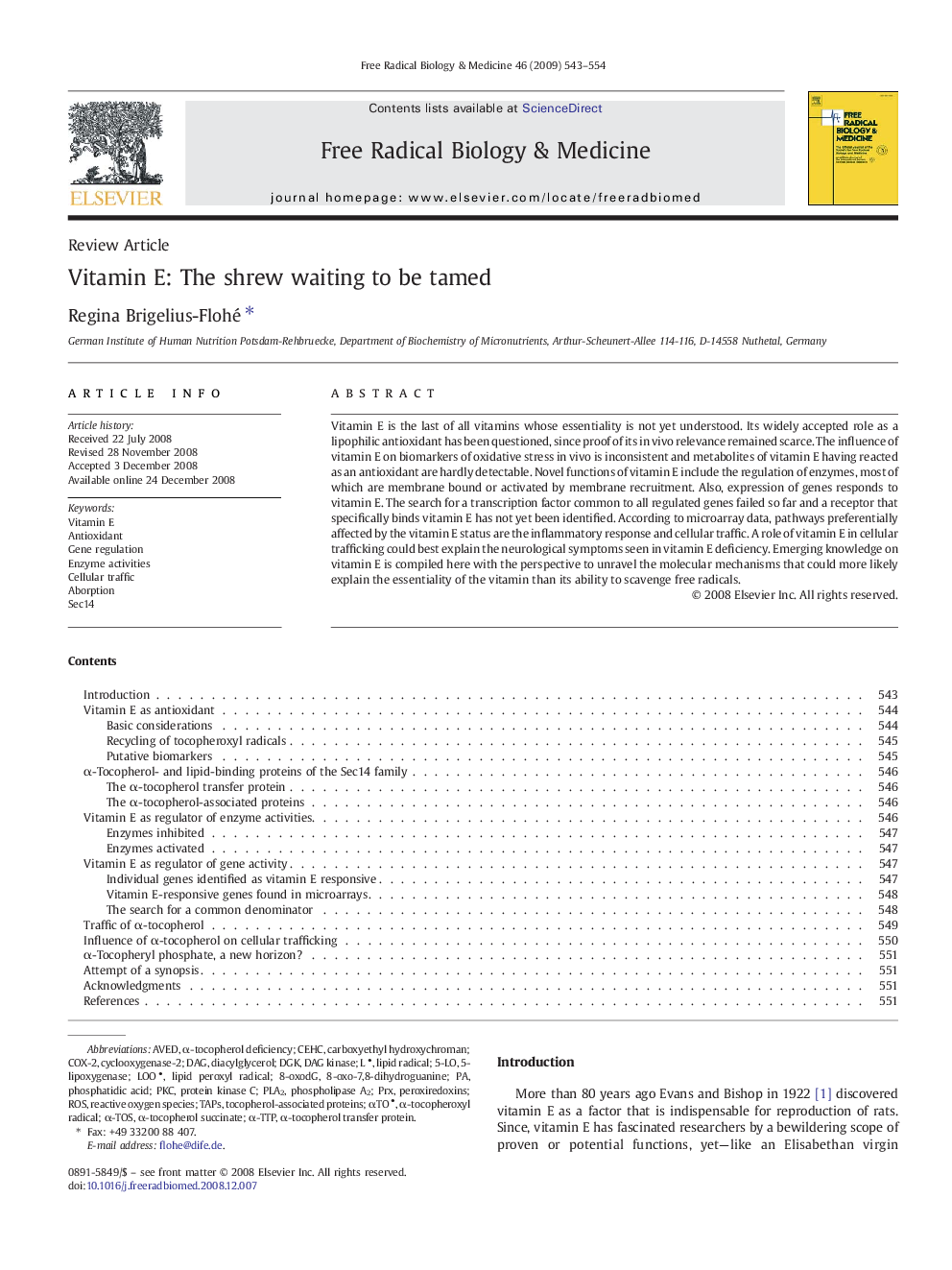| Article ID | Journal | Published Year | Pages | File Type |
|---|---|---|---|---|
| 1910288 | Free Radical Biology and Medicine | 2009 | 12 Pages |
Vitamin E is the last of all vitamins whose essentiality is not yet understood. Its widely accepted role as a lipophilic antioxidant has been questioned, since proof of its in vivo relevance remained scarce. The influence of vitamin E on biomarkers of oxidative stress in vivo is inconsistent and metabolites of vitamin E having reacted as an antioxidant are hardly detectable. Novel functions of vitamin E include the regulation of enzymes, most of which are membrane bound or activated by membrane recruitment. Also, expression of genes responds to vitamin E. The search for a transcription factor common to all regulated genes failed so far and a receptor that specifically binds vitamin E has not yet been identified. According to microarray data, pathways preferentially affected by the vitamin E status are the inflammatory response and cellular traffic. A role of vitamin E in cellular trafficking could best explain the neurological symptoms seen in vitamin E deficiency. Emerging knowledge on vitamin E is compiled here with the perspective to unravel the molecular mechanisms that could more likely explain the essentiality of the vitamin than its ability to scavenge free radicals.
